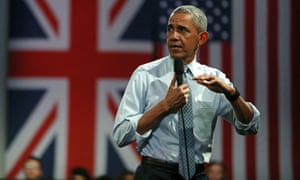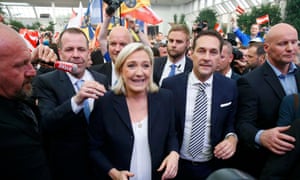European leaders and officials have had a rocky ride leading up to the EU referendum in the UK. First, there was complacency and denial, then a sense of panic, and now a muddled attempt to prepare next steps, whatever the result of the vote.
Six months ago, when David Cameron was trying to wrap up his renegotiation with the EU, the mood in European capitals was one of barely hidden annoyance – the “British question” needed to be dealt with swiftly so that the EU could get back to addressing more serious and pressing challenges than the requests coming from London.
Yet later, as opinion polls in Britain narrowed, the reaction shifted to a mixture of panic and bewilderment that Brexit might actually happen, bringing far-reaching consequences for the whole EU bloc. Now, days before the vote, minds have started to focus on what should be done to strengthen the European project, whichever way the referendum goes. But the answer to the question of “the day after” remains blurry – not least because of the shaky state of the Franco-German engine, which has always been key to the EU’s solidity.
For months, EU leaders kept mostly silent. They saw the prospect of a UK referendum as a tedious, unnecessary sideshow distracting attention from the more urgent and deeper matters the continent was confronted with – the Greek euro crisis, dealing with Russia, terrorism, migration and asylum questions.
European officials wanted the British question out of the way as fast as possible. The widely shared assumption was that Britons would be pragmatic enough to see pulling their country out of the EU was an utterly irrational and self-damaging move. Cameron had discreetly asked fellow EU leaders to refrain from wading into the referendum debate, for fear their input would be counterproductive. His hopes rested on the message Barack Obama would deliver while in London. But as time passed, it became obvious that hadn’t done the trick.

Barack Obama in the UK in April, when he warned against leaving the EU. Photograph: Justin Tallis/AFP/Getty Images
When concern grew, prominent European voices started openly sending warnings. At an event commemorating the 100th anniversary of the Battle of Verdun, the leaders of France and Germany criticised opponents of the EU. “They denounce Europe as the source of evil, without realising that Europe was created out of the ravages of evil,” said François Hollande. “It is important for the survival of the European Union that we not retreat within ourselves but remain open to the other,” said Angela Merkel.
Hitting an economic nerve, Germany’s finance minister made plain that if Britain quit the EU, it would deprive itself of access to the single market. Following the Swiss or Norwegian model “won’t work”, said German finance minister Wolfgang Schäuble: “In is in, out is out”. Jean-Claude Juncker, the president of the EU commission, said that if it quit the bloc, “the United Kingdom won’t be handled with kid gloves”.
EU leaders have in fact been struggling to find the right balance between two conflicting priorities: the need to demonstrate that Brexit could not be painless, to discourage other member states from contemplating a special status or from withdrawing from the bloc; and the need to limit the damage in case of a British departure by stating that cooperation would be preserved regardless.
Perhaps nowhere in the EU is the geopolitical fallout of a possible Brexit being watched with more anxiety than in the Baltic states. Toomas Hendrik Ilves, the president of Estonia, a country of 1.5 million where concern over Russian aggression has ridden high, said last month that over the past two decades he’d never been less optimistic about Europe’s prospects. He listed “the rise of populism and serious talk of the UK leaving the EU” among the most worrying developments.
In eastern Europe, “countries that had finished a 15-year odyssey to rejoin Europe” suddenly felt that “the world around us began to unravel”, Ilves said.
Britain’s withdrawal would mark a weakening of Europe’s liberal democratic order, many participants agreed. Some pointed to how Russian propagandists were trying to capitalise on European divisions, anticipating Brexit as a watershed. “The sands of Europe are shifting under our feet,” said one speaker. Britain is the only country that ever committed to carrying out an in/out referendum, but surveys show there are many in favour of holding similar consultations in other countries (53% in France; 49% of Swedes).
Last week, leaders of Europe’s largest far-right and populist parties gathered near Vienna to urge Britons to leave the 28-nation bloc. The meeting, called the Patriotic Spring, was designed to strengthen cooperation among anti-immigration, Europhobic movements that have been on the rise across Europe and see Brexit as a decisive, galvanising factor.

Marine Le Pen and Austrian far-right leader Heinz-Christian Strache arrive at the Patriotic Spring meeting in Vienna. Photograph: Heinz-Peter Bader/Reuters
The leader of France’s National Front, Marine Le Pen, told the crowd that “the peoples of Europe” should “take back their liberties” just like “the United Kingdom is regaining its liberty”. Hosted by Austria’s Freedom party, which came close to winning presidential elections in May, the event was attended by representatives from nine countries, including from Germany’s Alternative for Germany party and Italy’s Northern League party.
For many on the continent, Britain’s specific identity – being “of” Europe rather than fully “in” it – was never much in doubt, but there has been deep annoyance about how Cameron has put the very destiny of the EU at stake by falling into a political trap of his own making, ever since he called for a referendum in 2013.
The irony, many European diplomats and experts say, is that if it were to leave the EU now, Britain would be shunning a club that has arguably never been as “British” in its mindset. Events and crises have forced the EU to focus on trying to deliver concrete, pragmatic solutions to immediate problems rather than entertain abstract notions such as “ever closer union” that the British dislike.
Once emphatic talk of deepening political integration, for example, through initiatives meant to strengthen eurozone governance or to work on a common European defence and security policy, has become cautious. That’s because France and Germany do not necessarily see eye to eye on how to proceed. Their leaders are faced with important elections next year and the rise of Eurosceptic movements in both countries is having a paralysing effect. Pro-EU statements will surely follow the British vote, whichever way it goes, but rapid and effective decision-making seems highly uncertain, say diplomats.
One widely shared sentiment is that Brexit would represent a deep danger to Europe’s democratic ideals because of possible domino effects and because of the overall popular loss of confidence in the EU it would signal. Karel Schwarzenberg, a former Czech foreign minister who was a close friend of Václav Havel, once an important voice of Europe’s moral conscience, takes the historical perspective: “We in Europe have had the great opportunity over the last half-century to create a sense of common identity and interest – why throw that away?”
No comments:
Post a Comment